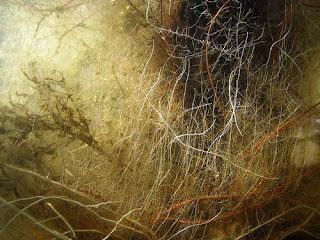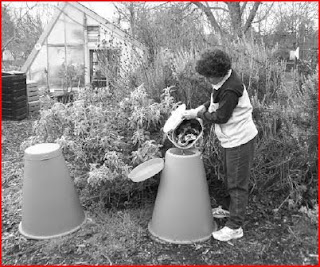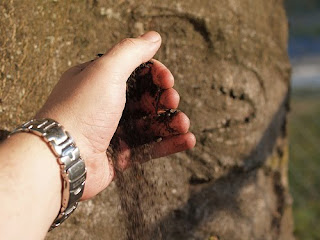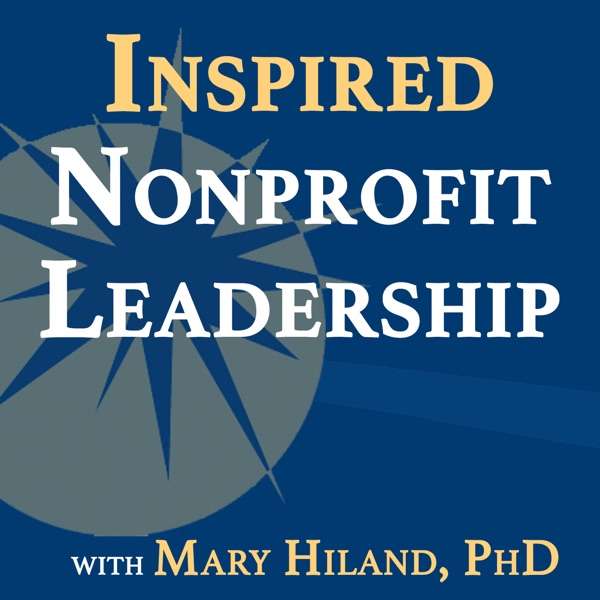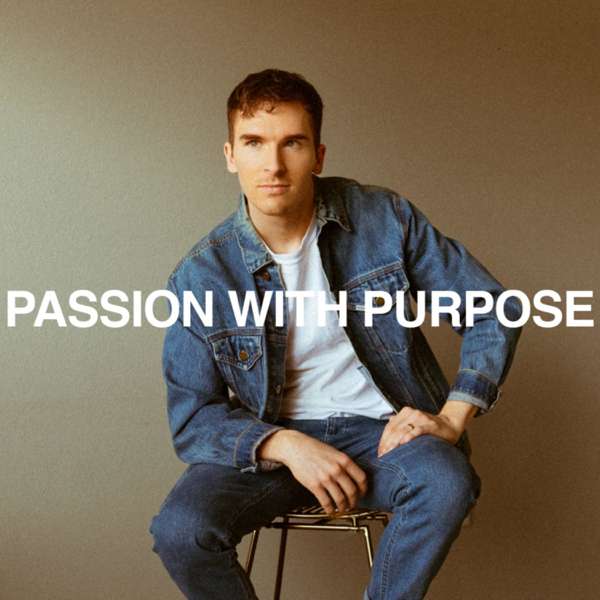In the late
70s the Tilth Garden property was managed by the Seattle Parks Department. With
the input of neighbors, Parks set aside ½ acre space for a community garden. Before the
p-patch, before the beautiful and rich demonstration garden and greenhouse,
there was asphalt and concrete. Tennis courts and basketball courts at the Good
Shepherd Center had to be removed and hauled away. In 1980 Parks brought in
heavy machinery to remove the pavement (in winter – think compaction!). It
seemed impossible to grow anything other than weeds that first year.
In 1981 an old
gardener’s cottage on the GSC grounds was moved to the new community garden
space. With a grant of $15k from Department of Neighborhoods Seattle Tilth was
lined up to fix it up as a greenhouse, cooking demo area and caretaker’s loft, but
arson took the cottage. The existing greenhouse was built instead.
The Love
Family’s contribution of a truckload of composted manure was the first addition of organic matter to
the new demonstration garden (see
http://seattletilth.org/about/abriefhistoryoftilth for more information on the history
of Tilth).
Six two-yard
bins were built to compost on site. Fresh material was brought in weekly, and
Carl Woestwin was making 1 yard of finished compost a week by 1981.
That same year
Seattle Tilth received a $5k grant to demo cold frames and to explore food
gardening in a scientific way using a public demonstration garden. The SPU/Seattle
Tilth partnership began with the Master Composter Program.
Formation
of MC/SB
The city put
out a Request for Proposal, (RFP) in 1985 to develop curriculum and deliver
what was then called the Community Composting Education Program. The first
class met in 1986, taught by Craig Benton, Jeff Gage, and Carl Woestwin. It was
the first Master Composter program in the country, with 40 hours of training
and 40 hours of outreach.
As part of
the RFP, the Compost Hotline was created, which has turned into the Garden
Hotline we have today.
Jeff Gage
went on to start the ZooDoo program at Woodland Park Zoo. Craig Benton sells
compost systems worldwide. And Carl Woestwin just retired from 24 years of
service at Seattle Public Utilities.
Happy Retirement, Carl!
Carl Woestwin
started out as a groundskeeper at the Good Shepherd Center in 1977, when Tilth
was formed. He helped build the demo garden, demonstrate the viability of
community composting, and eventually was part of the first team of educators to
teach MC/SB. His vision for Seattle Tilth: To show the viability of urban agriculture
in a scientific way; to support local food systems; to help reduce waste. In
June he retired from SPU.

 Our TOPPODCAST Picks
Our TOPPODCAST Picks  Stay Connected
Stay Connected


